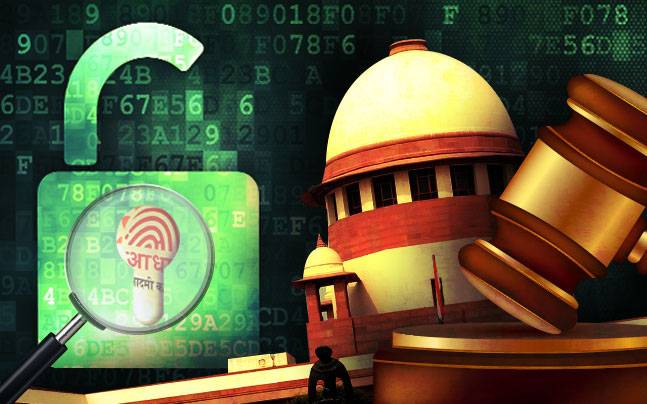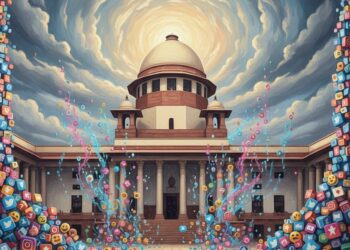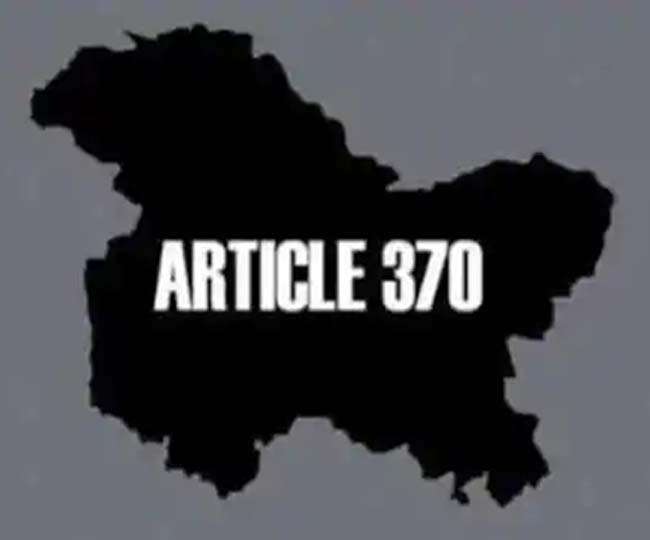State is a monster sentinel that serves only a vigilant master. When the master gets complacent, the monster takes over, and a tyrant is born and tyranny let loose. That’s the short and scary operating manual for democracy. The indubitable truth of the treacherous nature of all political systems no matter how well structured and how firmly founded is missed or doubted only by the most naive, and the founding fathers of the Indian Constitution — being as sagacious and foresighted as they were — did not fall prey to any fanciful reveries about it. A plain reading of Part III of the Constitution of India, starting with Article 12, leaves one in no doubt that Fundamental Rights have been placed as far away from the meddling hands of the State as possible.
Article 12 defines ‘state’ in the most expansive fashion for the purpose of Part III of the Constitution and includes all branches of the Legislature and the Executive thereby stipulating that Fundamental Rights are primarily guaranteed against the State implying that the most formidable threat to the Fundamental Rights is presented by the State itself and for that reason an independent branch of the State — the Judiciary — is appointed and duly empowered to stand guard against any and all encroachments on the Fundamental Rights by the other two branches of the State. So, in the specific context of Right to Privacy vis-a-vis the Aadhar Act, the answer to the question as to how is personal data in the hands of the State different from personal data in the hands of the corporates is right there for anybody to see. Private organizations can certainly misuse and abuse personal information of the individuals to further their commercial interests, but that’s as far as they can go.
Besides, for any violation of any rights by commercial establishments, they can be dragged to the court and made to pay by their noses, so to speak. And then there can always be laws, rules and regulations against the misuse of personal data backed by stinging, immediate penalties compelling the commercial establishments to take data privacy and data protection seriously. So, that’s not much of an urgent concern, which is also because management and protection of private data can be easily regulated once Right to Privacy is firmly entrenched as a Fundamental Right. But if the State is allowed the unbridled freedom to routinely ignore Right to Privacy itself, it might change the face of democratic governance in India in drastic but not readily discernable ways.
Hearing the arguments on Right to Privacy, the Hon’ble Supreme Court raised concern about one of the most benign consequences of the breach of Right to Privacy when the Hon’ble Court reportedly remarked in June 2017, “There may be a billion Aadhaar card holders. I don’t want the state to pass on my personal information to some 2,000 service providers who will send me WhatsApp messages offering cosmetics and air conditioners … That is our area of concern. Personal details turn into vital commercial information for service providers. Have you got a robust protection mechanism?” That’s not even remotely close to the least of the most perilous consequences of the breach of Right to Privacy imaginable, and it’s still quite a legitimate concern.
What if a determined government pursuing the so-called ‘greater common good’ chooses to selectively use the personal information gathered by mass surveillance to suppress dissent and curtail criticism in the times of a political crisis? What if the personal information regarding the philandering ways of an eminent critic of the government is used by the government to blackmail him into submission? If Right to Privacy is not recognized as a Fundamental Right and is not aggressively protected against governmental breaches, it would be easy for the State to routinely misuse government machinery for shallow political ends, and soon enough people would be too fearful to criticize the government except in the most lukewarm way for the fear of getting the government interested in having their personal data dug into.
From the moderate ‘sin’ of checking into a hotel room in one’s own city with an unknown female companion to making an online purchase of the membership of an adult website, just about anything can effectively deter a common man from speaking his mind against the government, if he or she is aware of the very real possibility of the government’s being in possession of his or her private information coupled with the fact that it would not take more than a few clicks and searches for the government agencies to get hold of the most uncomfortable details of his private life to beat him around with. Let’s not forget that most of us are not really legal wrongdoers, much less criminals, but we are not holy saints either, particularly in private. A single text message sent by a man in his moment of weakness can return to destroy the home and family he has spent his life putting together. Hold it over his head, and he would keep his head down for the rest of his life. A booming voice of dissent can turn into a muted whimper in no time.
“When one can share personal data with private players like Apple, why not share it with the government? What’s the difference?” The Hon’ble Supreme Court asked on another occasion during the arguments on Right to Privacy. The difference, plain and simple, is that Apple does not have the police and the armed forces at its disposal and has no reason to browbeat and arm-twist people into submission.
 One might find this view of the State a little too cynical, but it is just as cynical as Part III of the Constitution. As pointed out earlier, the tall and sturdy walls raised around the Fundamental Rights contemplate attempted breaches by the most formidable adversary — the State itself. And if our own constitutional history is anything to go by, we have had powerful governments resorting to extreme measures in the past to blatantly compromise the Fundamental Rights of the citizens and even subvert the Judiciary in order to hold on to power. So, the rather uncharitable view of the State is not really cynical; if anything, it’s unwaveringly realistic, and, if I may add at the risk of repetition, constitutionally endorsed.
One might find this view of the State a little too cynical, but it is just as cynical as Part III of the Constitution. As pointed out earlier, the tall and sturdy walls raised around the Fundamental Rights contemplate attempted breaches by the most formidable adversary — the State itself. And if our own constitutional history is anything to go by, we have had powerful governments resorting to extreme measures in the past to blatantly compromise the Fundamental Rights of the citizens and even subvert the Judiciary in order to hold on to power. So, the rather uncharitable view of the State is not really cynical; if anything, it’s unwaveringly realistic, and, if I may add at the risk of repetition, constitutionally endorsed.
The Parallel
Fundamental Rights enjoy constitutional centrality and protection because human life is inconceivable without them except in the most lowly form of animal existence, which is why they are, more or less, a reflection of the Human Rights recognized by the Universal Declaration of Human Rights (UDHR), which India signed as one of the original 48 signatories when it was adopted by the United Nations General Assembly on December 10, 1948 at the Palais de Chaillot in Paris, France. Article 12 of the UDHR recognizes Right to Privacy as one of the Human Rights and declares: “No one shall be subjected to arbitrary interference with his privacy, family, home or correspondence, nor to attacks upon his honour and reputation. Everyone has the right to the protection of the law against such interference or attacks.”
To say that Right to Privacy is not a Fundamental Right simply because it has not been specifically included as one in Part III is too weak an argument to even warrant a response because by that reasoning none of the implied Fundamental Rights read into Article, 14, Article 19 and Article 21 by various judicial pronouncements is a Fundamental Right. Absence of categorical inclusion is not implicit exclusion. In fact, most of the Fundamental Rights include the subspecies of those rights by necessary implication, which is why many of the undeclared rights are recognized by the constitutional courts as ‘Implied Fundamental Rights’.
To draw a parallel with Right to Privacy, Right against Torture is not expressly recognized as a Fundamental Right under the Indian Constitution, but is one of the Human Rights recognized by Article 5 of the UDHR, which declares: “No one shall be subjected to torture or to cruel, inhuman or degrading treatment or punishment.”
Recognizing Right against Torture as a Fundamental Right, the Supreme Court, in Nandini Satpati v. P.L Dani, AIR 1978 SC 1025, held “compelled testimony” to not only mean testimony obtained through “physical threats or violence” but also through “psychic torture, atmospheric pressure, environmental coercion, tiring interrogative prolixity, overbearing and intimidatory methods.” The Supreme Court extended the reach of Article 20 to the pre-trial, investigation stage. It was argued with some force that Article 20, which pertains to “protection in respect of conviction for offences” applies to the trial because Article 20 is about protection against Ex-post facto laws, Double Jeopardy and Self-Incrimination, which are issues that principally pertain to trial and the compliance with Article 20 is to be generally ensured by the courts. The Supreme Court rejected the contention of the learned Advocate General that “Article 20(3), unlike Section 161(1), did not operate at the anterior stages before the case came to court and the accused’s incriminating utterance, previously recorded, was attempted to be introduced,” and referred to the reasoning followed by the Supreme Court of the United States in Miranda v. Arizona, whereby the US Supreme Court, to quote the Indian Supreme Court, “extended the embargo to police investigation also”.
After Nandini Satpati, Right against Torture was consistently held to be an implied Fundamental Right not just under Article 20 and Article 22, but also under Article 14, Article 19 and Article 21 in a large number of Supreme Court rulings from Sunil Batra v. Delhi Administration, 1978 (4) SCC 494, Raghbir Singh v. State of Haryana, 1980 ( 3) SCC 70, Khatri v. State of Bihar, AIR 1981 SC 928, State of U.P v. Ram Sagar Yadav, 1985 (1) SCC 552 to D.K Basu v. State of West Bengal, AIR 1997 SC 610 and Nelabati Behara v. State of Orissa, 1993 (2) SCC 746.
In Sunil Batra v. Delhi Administration, 1978 (4) SCC 494, the Supreme Court invoked not only the provisions of the Indian Constitution but also Article 8 and Article 9 of The Declaration on the Protection of All Persons from Torture and other cruel, Inhuman or Degrading Treatment or Punishment adopted by U. N. General Assembly (Resolution 3452 of December 9, 1975).
In D.K Basu v. State of West Bengal, AIR 1997 SC 610, the Court laid stringent guidelines with respect to the procedure to be followed during and after the arrest of a person so long as he or she is in police custody. The Court also went ahead and ruled that a failure to comply with the guidelines “shall apart from rendering the concerned official liable for departmental action, also render his liable to be punished for contempt of court and the proceedings for contempt of court may be instituted in any High Court of the country, having territorial jurisdiction over the matter.”
In Nelabati Behara v. State of Orissa, 1993 (2) SCC 746, the Supreme Court refused to be constrained by the absence of an express constitutional provision for the award of compensation in case of the violation of a Fundamental Right. In awarding compensation, apart from its constitutional powers under Article 32 and Article 142, the Supreme Court also invoked Article 9(5) of the International Covenant on Civil and Political Rights, 1966, which stipulates: “Anyone who has been the victim of unlawful arrest or detention shall have an enforceable right to compensation.“
Right to Privacy stands exactly in the same stead as Right against Torture stood before it was definitively declared as an implied Fundamental Right. Both the rights were recognized as Human Right by UDHR but neither found place under Part III of the Constitution as a Fundamental Right. Right against Torture makes Article 20 more meaningful while Right to Privacy enriches “personal liberties” under Article 21. Like Right against Torture, Right to Privacy comes consistently endorsed as an implied Fundamental Right by the smaller benches of the Supreme Court. Although the two rights are substantially different from each other, they fall in the same broad category of rights, and the inclusion of Right against Torture as an implied Fundamental Right automatically defeats a few sweeping arguments against the recognition of Right to Privacy as a Fundamental Right.
The Challenge
Against Right to Privacy, the government relies principally upon MP Sharma v. Satish Chandra, 1954 SCR 1077, and Kharak Singh v. State of UP, 1964 SCR (1) 332. Neither of the rulings is likely to lend much force to the argument against Right to Privacy. In MP Sharma v. Satish Chandra, 1954 SCR 1077, the issue was whether the power to search and seizure during the investigation was a violated Right to Property, which was a Fundamental Right back then under Article 19 (1) (f). The other question was whether Right to Privacy was an implied Fundamental Right, which stood breached when the power to search and seizure was exercised. The Supreme Court held that search and seizure was “only a temporary interference” and was a “reasonable restriction” and for that reason, it could not considered unconstitutional.
Refusing to recognize Right to Privacy as a Fundamental Right, the Supreme Court held: “When the Constitution makers have thought fit not to subject such regulation to constitutional limitations by recognition of the fundamental right to privacy, analogous to the American Fourth Amendment, there is no justification for importing into it, a totally different fundamental right by some process of strained construction.”
Once the power to search and seizure has been recognized as a “reasonable restriction” in accordance with the mandate of the Constitution, it applies to Right to Privacy as well because Right to Privacy, like all other Fundamental Rights, implied and express, is subject to reasonable restrictions. The question whether or not Right to Privacy is an absolute right makes little sense because almost none of the Fundamental Rights under Part III of the Constitution is absolute, and, quite obviously, a right need not be absolute for it to be a Fundamental Right.
The rationale that Right to Privacy is not a Fundamental Right simply because the Constitution makers did not expressly pronounce it as one might have had some force back then, but, as pointed out in the foregoing discussion, the argument has no merit in view of a gamut of implied Fundamental Rights. Furthermore, ‘importing’ American jurisprudence or referring to international covenants for the purpose of interpreting or expanding the scope of Fundamental Rights under Part III of the Indian Constitution is neither new nor unusual.
So far as Kharak Singh v. State of UP is concerned, the judgment does state that that Right to Privacy is not a ‘guaranteed’ Fundamental Right, but in striking down the provision authorizing “domiciliary visits at night” the judgment does accede to the notion of privacy to some extent. However, Justice Subba Rao, in his dissenting opinion, observed that movement under surveillance could not be construed as free and for that reason “if a person is shadowed, his movements are obviously constricted”, which makes the entire country his prison because he is not truly free despite the freedom of bodily movement. Justice Subba Rao found it in contravention of Article 19 (1) (d). He observed: “It is true our Constitution does not expressly declare a right to privacy as a fundamental right, but the said right is an essential ingredient of personal liberty.” If Right to Privacy is an ‘essential ingredient’ of ‘personal liberty’, which is a constitutionally guaranteed Fundamental Right under Article 21, it is a subspecies of ‘personal liberty’, which makes it an implied Fundamental Right by extension.
Therefore, from the perspective of constitutional jurisprudence, even the judgments that the Center seeks to rely upon against Right to Privacy as a Fundamental Right do not quite lend the kind of concrete conceptual support required to dislodge Right to Privacy from its well-entrenched position as an implied Fundamental Right as consistently recognized by the smaller benches of the Supreme Court.
The jurisprudential foundation of Right to Privacy is so firm that on July 26, 2017, Attorney General KK Venugopal couldn’t help conceding to the Supreme Court, “There is a fundamental right to privacy, but it is a wholly qualified right since the right to privacy consists of various aspects and is a sub-species of the right to liberty, every aspect of it will not qualify as a fundamental right.” That concession is more than sufficient because it is not possible to argue that ‘every aspect’ of any Fundamental Right is also a Fundamental Right unless it is an inalienable part of the Fundamental Right in question.
Right to Privacy and Aadhaar
Right to Privacy is certainly a multifaceted right and it is not easy to clearly outline it only because, being a subspecies of “personal liberty”, it flows into and overlaps with other cardinal rights, which is precisely why it cannot be denied the status of an implied Fundamental Right. To put it simply, every human being has an inherent right to be left alone without undue interference and intrusion and be allowed the liberty to disclose only such personal information and only to such people as he or she chooses to. As a Fundamental Right, Right to Privacy would mean freedom from State interference in one’s personal domain, which would include the right against being compelled to disclose any information except in connection with a crime or to avert imminent danger to public safety.
Aadhaar or Aadhaar Card, as it is generally known, is basically a 12 digit unique-identity number issued to Indian residents based on their biometric and demographic data collected by the Unique Identification Authority of India (UIDAI), a statutory authority established on July 12, 2016 by the Government of India, under the Ministry of Electronics and Information Technology, under the provisions of the Aadhaar (Targeted Delivery of Financial and other Subsidies, benefits and services) Act, 2016.
Aadhaar scheme ran into legal trouble only when the government started making Aadhaar mandatory for every other facility and service. Making possession of Aadhaar beneficial was perfectly fine, but attaching disabilities and disadvantages to non-possession of Aadhaar is clearly an unwarranted coercive measure on part of the State to obtain personal data from the citizens. That’s where Aadhaar falls foul of Right to Privacy. Even if Aadhaar is a heaven-sent solution for ‘targeted delivery of financial and other subsidies, benefits and services,’ the objective is not compelling enough for the State to force people to part with their personal information, which means that the government is in clear breach of Right to Privacy, and if the Supreme Court declared Right to Privacy a Fundamental Right, which is very likely, the government might be forced to reconsider the mandatory nature of Aadhaar in all seriousness.
Originally published as Cover Story in Lawyers Update [September 2017, Vol XXIII, Part 9].





